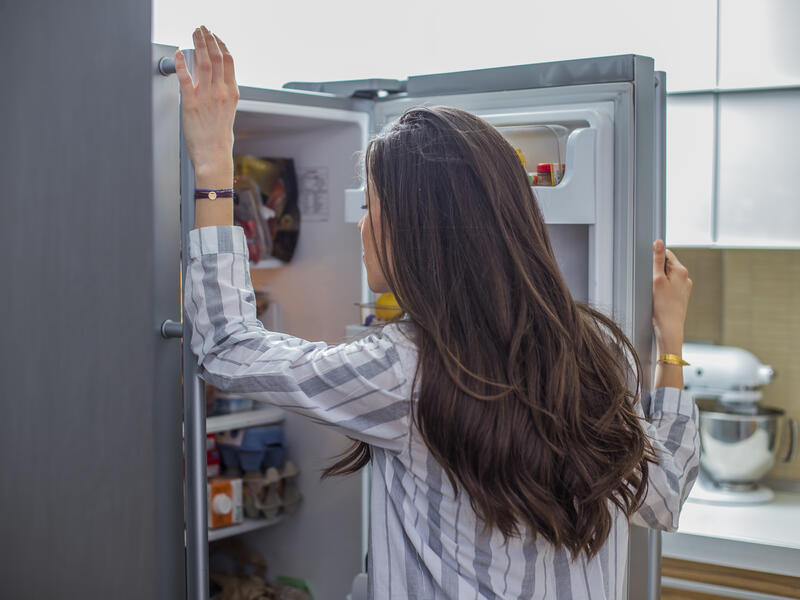With turkey, stuffing, mashed potatoes, cranberries and side dishes galore, Thanksgiving meals are filled with tasty foods. But often those dishes stick around for much longer than a day.
And while Thanksgiving leftovers are as sought after as the big meal itself, turkey and side dishes are only safe to eat for a certain amount of time.
Take our quiz: What do you know about food safety?
Safely storing
For safely storing your leftover food, the U.S. Department of Agriculture says to keep these tips in mind:
- Store leftover food in shallow containers no more than 2 inches deep.
- Refrigerate or freeze leftovers within two hours.
- Set the fridge temperature between 33 and 40 degrees Fahrenheit, and your freezer at 0 degrees Fahrenheit or lower.
- Remove cooked turkey from the bone, and store it separate from stuffing and gravy.
- Make sure you store any meat, eggs, veggies and milk within two hours.
- Throw away food left out at room temperature for longer than two hours.
- Discard any food you’re unsure of being safe. When in doubt, throw it out.
- Reheat leftovers to 165 degrees Fahrenheit.
Leftover lifespan
Whether you enjoy your leftovers as they are or use the ingredients to make new dishes, it’s important to keep expiration dates in mind. According to foodsafety.gov, a website of the U.S. Department of Health and Human Services, the following foods are safe in the fridge:
- Turkey: 3-4 days. Eat turkey within three to four days of cooking. If you use the turkey in a new dish like a soup or casserole, only consume within those initial four days. Another option is freezing the cooked turkey. Turkey can last up to four more months if frozen. However, keep that four-day time frame in mind. If it is frozen two days after cooking, once it is thawed out, it is only good for two more days.
- Stuffing and gravy: 2 days. Use stuffing and gravy within two days of cooking.
- Side dishes: 5 days. Enjoy miscellaneous side dishes up to five days after cooking, depending on the ingredients included in the dishes.
The main reason to enjoy your leftovers before these time frames is bacteria. Bacteria can grow in your food. The longer the food is in the fridge, the more bacteria it can harbor.
Bacteria and viruses found in food can cause food poisoning (or foodborne illness). You can prevent food poisoning by washing your hands often and cooking and storing food safely.
Alternatives to leftovers
If you cook a big meal and have more leftovers than you’ll be able to use up, consider giving all guests a plate to-go. Not only will they be thankful to have some delicious food to take with them, but you won’t have to worry about consuming all leftovers or discarding those you couldn’t finish.
Read more
- Advance care planning: Holidays can be time for good talks
- Tune up your Thanksgiving meal plans
- How to manage your child’s food allergies
…
Posted In Emergency Medicine, Health Information, Healthy Living, Nutrition
